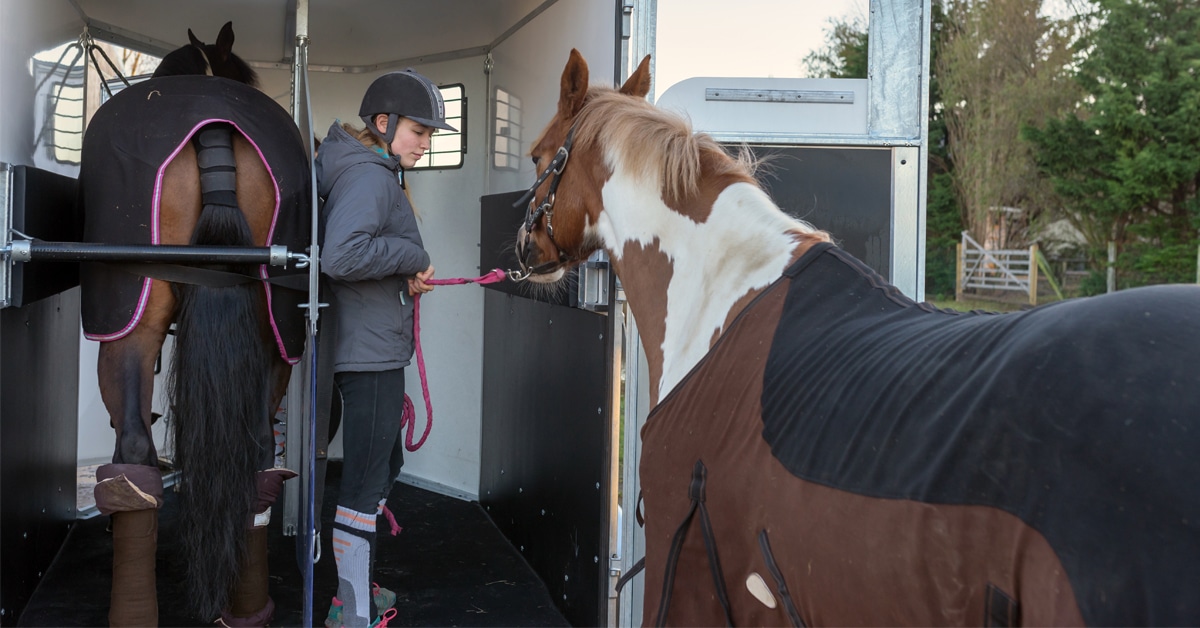 HorseSport.com - Full article
HorseSport.com - Full article
A pair of studies show that there are significant changes in immune and endocrine function following even short periods of shipping.
By: Equine Disease Quarterly | November 15, 2023
Horses are commonly shipped for periods of three hours or less ‒ but even short hauls can elicit significant changes in immune and endocrine function, especially in older horses.
Horses are routinely transported for equestrian events as well as medical care. It is well recognized that long-distance transportation is a risk factor for the development of pleuropneumonia.
Results from a nationwide survey showed that horses are most commonly trailered short distances of three hours or less. The Adams Lab at the Gluck Equine Research Center within the University of Kentucky Martin-Gatton College of Agriculture, Food and Environment is currently working to investigate the impact of acute transportation stress on immune function in different groups of horses...
Read more here:
https://horsesport.com/magazine/equine-ownership/horses-affected-short-term-transportation-stress/?vgo_ee=QitO5VSCw1iEppDMQhoydIrFRbRpklJfDwhn08iZTD4u3RAMFDeL%3AdA09E6McyAFbRRwLRE7dSXKyDsnsBIxw

